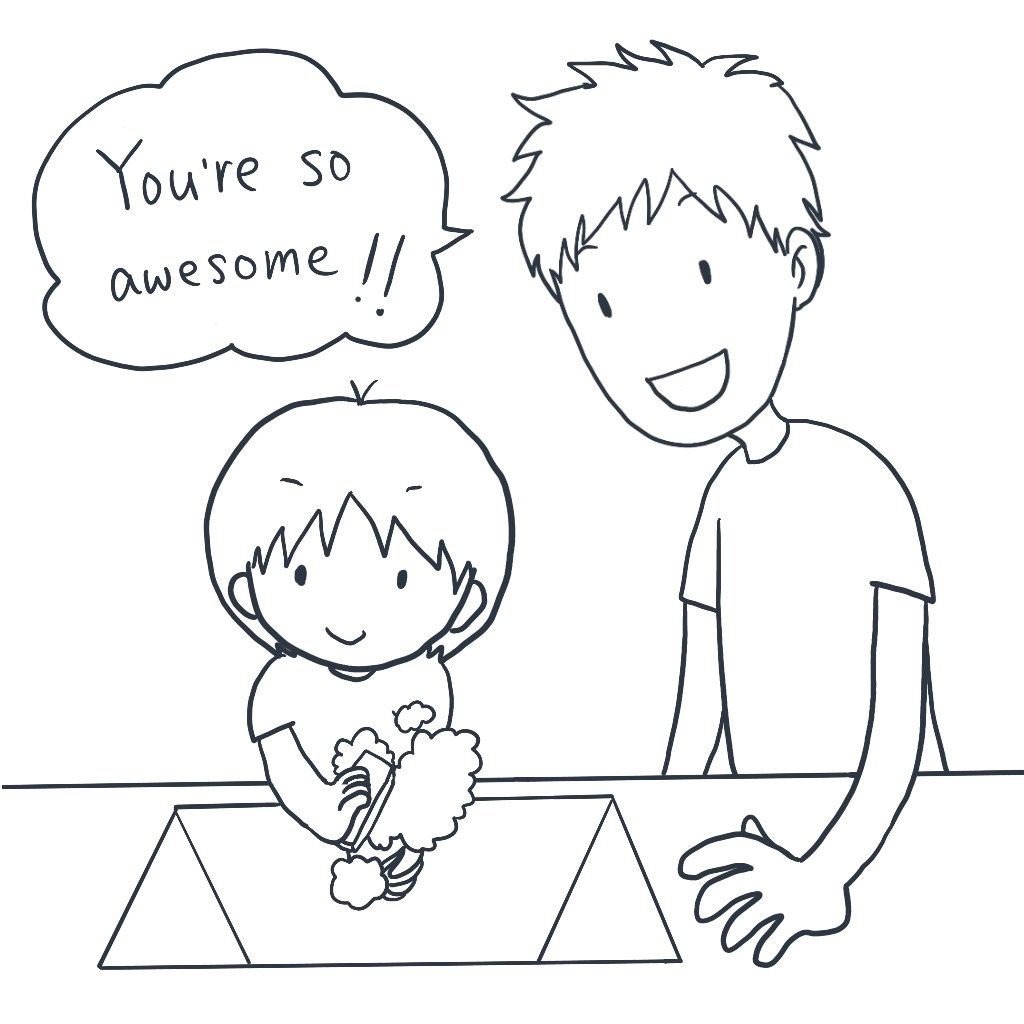Memolines ~ How we see our children as parents quietly shapes who they become
This is the first environment they experience after birth, and our attitudes deeply influence how they see themselves.
Our little one is potty training, and sometimes she has accidents. When this happens, I’ll rinse out her underwear in the sink with some soap, then throw them in the laundry basket.
A few times, she came over asking, “What are you doing, Mommy?” I told her, “Mommy’s washing your underwear.” After watching me several times, she wanted to help too, always trying to grab the underwear while I was washing. So I started walking her through each step: wet the underwear, put soap on it, then rub it with my hands.
One day, Dad was supervising potty time when she had another accident. He put the soiled underwear in the sink and stepped out briefly. When he came back, there she was, standing on her little stool, carefully soaping up the underwear.
“What are you doing?” Dad asked.
“This is soap for washing underwear,” she said seriously.
“Do you know how to scrub?”
She picked up the underwear with her tiny hands and started scrubbing back and forth.
Dad was thrilled: “You’re so awesome! Mommy and Daddy never did things like this when we were little.”
She has surprised us in so many other ways too. When she was really little, she started helping us unload the dishwasher, brush the dogs’ teeth, put the dogs in their crates, and even try to wash herself. Every time she does something like this, we make sure to praise her.
My husband reflected, “She’s becoming exactly how we praise her to be.” He shared how his own mother would always tell people “my son is wonderful” - and he grew up to be the person she said he was.
Kids can tell when praise is genuine. Consistent positive recognition helps them develop a self-image: I’m worthy of praise, I should feel proud of myself.
There’s something in my culture about staying humble, like pointing out what needs improvement matters more than celebrating what’s good. It’s like looking at a half-full glass - many people automatically see what’s missing, while we try to first notice what’s already there.
This mindset helps us be more patient with our daughter, and also kinder to ourselves and each other. We notice our own wins, our family’s strengths, and our child’s progress - and we’re generous with recognition.
Of course, when she really doesn’t do something well, we focus on problem-solving. If something breaks, we think about how to clean it up and prevent it next time, rather than dwelling on the mistake itself.
How we act as parents really shapes our kids’ growth. This is the first environment they experience after birth, and our attitudes deeply influence how they see themselves.
These little people are trying everything for the first time. When we approach what they do with patience and positivity, we’re sending a clear message: you’re accepted, your efforts matter.
How we see our children quietly shapes who they become.


